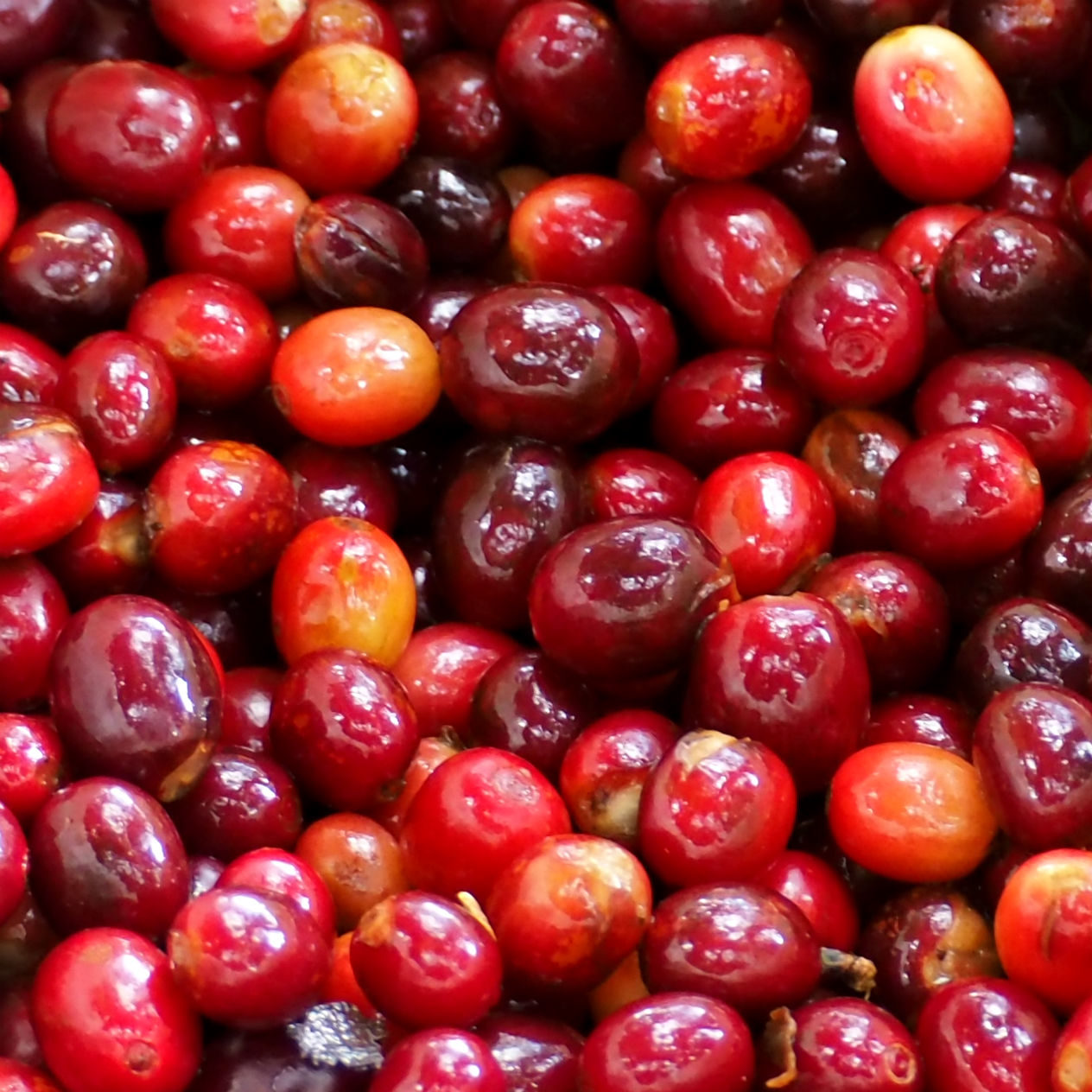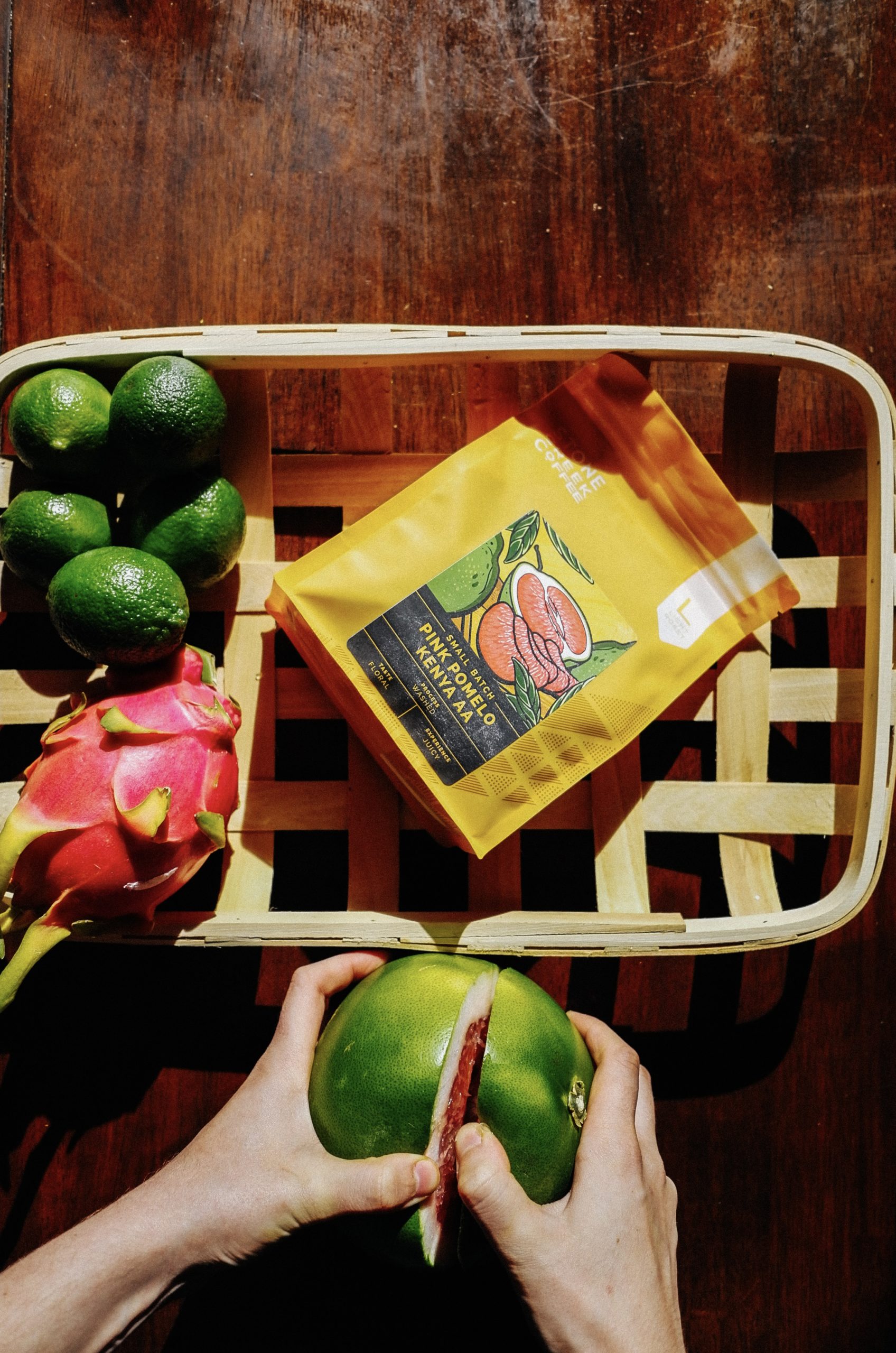Coffee Geeks, Farm to Cup
PINK POMELO KENYA AA
Brand new to our small batch line, Pink Pomelo Kenya AA is in the house. We’re excited about this floral & juicy offering. Available in 48g Tasting Samples for $3.00, one-pound bags for $22, and five-pound bags (online only) for $90, you can get this online or at your neighborhood SCC cafe. And if you stop in a cafe to get a bag, you’ll be able to also order it manually brewed on our Brew Bar, or starting on November 17th, try it in your favorite barista-crafted beverage as our Seasonal Espresso.
So, what is a Pomelo? It is a large citrus fruit that is native to Southeast Asia and is the principal ancestor to a grapefruit. Now that we’ve got part of the name discussed – let’s chat about the letters after “Kenya.” You may notice that certain coffees have letters after their names. What do they mean, you ask? Read on to learn more about green coffee grading.
Once the coffee has been dried, it runs through several machines including a destoner (removes stones and other items you don’t want in your coffee) and coffee huller (removes parchment) before arriving at the coffee graders. These machines use screens with different-sized holes to act as a sieve to allow the coffee to be classified by size.
The thought behind coffee bean classification is that coffees of the highest altitudes (often viewed as the tastiest and highest quality) are denser and larger in size. This theory may not always be the case as there are numerous exceptions to this thinking; however, this size classification does verify that the coffee lot is the same size. This means that all the coffee will roast uniformly, creating a consistent flavor among all the coffee beans.
From smallest to largest, the grading system in Africa follows this scale — PB (Peaberry), C, AB, AA, and E (Elephant, which usually are 2 seeds that are joined together in the same coffee cherry). After grading is completed, AA and AB coffee beans are processed using gravity tables. These tables will detect the density one more time, so producers can define the lower-quality beans and remove them. Now that you understand a little more about what “AA” means, let’s chat about the lot that was used for Pink Pomelo.
The Thirikwa FCS has been turning heads with record-breaking auction prices at the Nairobi Coffee Exchange. Members of the cooperative have also been celebrating with higher prices earned per pound for cherry- 10 times the average price paid for cherry and the highest prices paid anywhere in Kenya. The Thirikwa Cooperative Society is located in Mt. Kenya’s Upper Medium (or UM2) zone. Around 1,200 farmers deliver their cherries at this factory during the season’s peak. Together, they produce about 4,100 bags (60kg) annually- roughly 55,000lbs. Farmers handpick ripe cherries and deliver them to the Gakuyu-ini mill for processing the same day. Gakuyu-ini opened in 1997 and is the only factory of the Thirikwa society. With the harvest coming from small parcels, cherry classification is the most critical variable for ensuring cup quality. Small plots and high prices per pound give these producers more control to strategically pick and deliver only the ripest cherry to the factory.
Cherry sorting is carried out at the mill before pulping, and ripe cherries are separated from underripes, overripes, and foreign matter. The parchment is then fermented overnight before being washed and graded into P1, P2, P3, P lights, and pods. The P1 and P2 are soaked for around 16 hours, while the other grades are moved directly to the drying tables. After that, it is dried on the drying tables for 8-14 days. The mill uses clean river water from the Kiri river to process and recirculate it before disposing of it in seepage pits. Gakuyu-ini is about 130km from Nairobi and is represented by five elected management committee members.
Grab a bag of this floral and juicy coffee with free, carbon-neutral shipping when you click the button below and enjoy this sparkling gem from Kenya.
SHOP PINK POMELO KENYA AA


